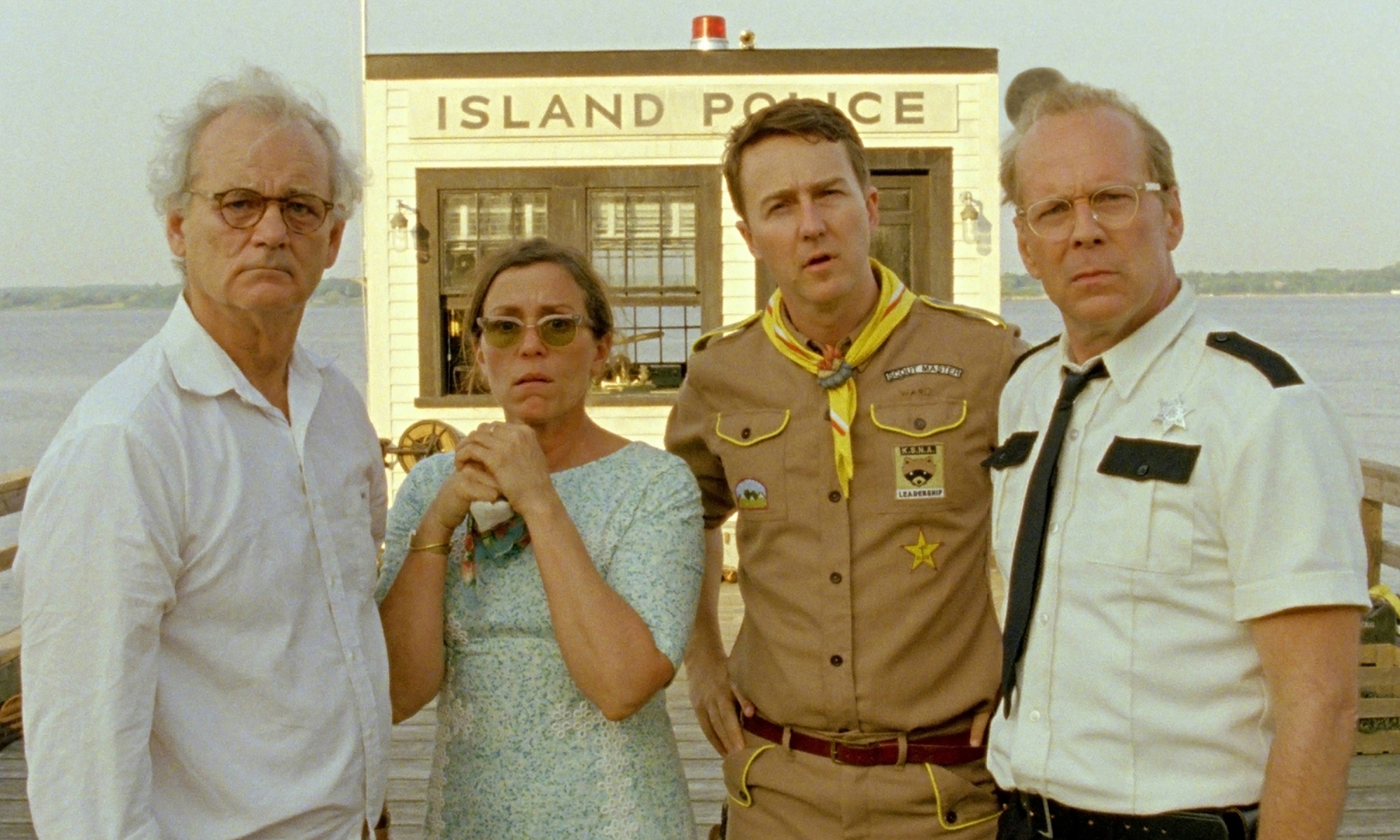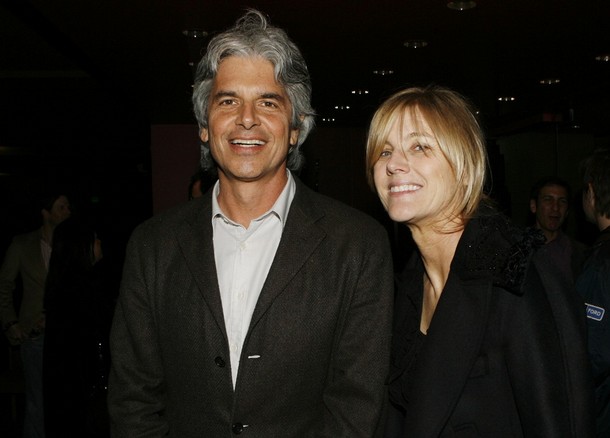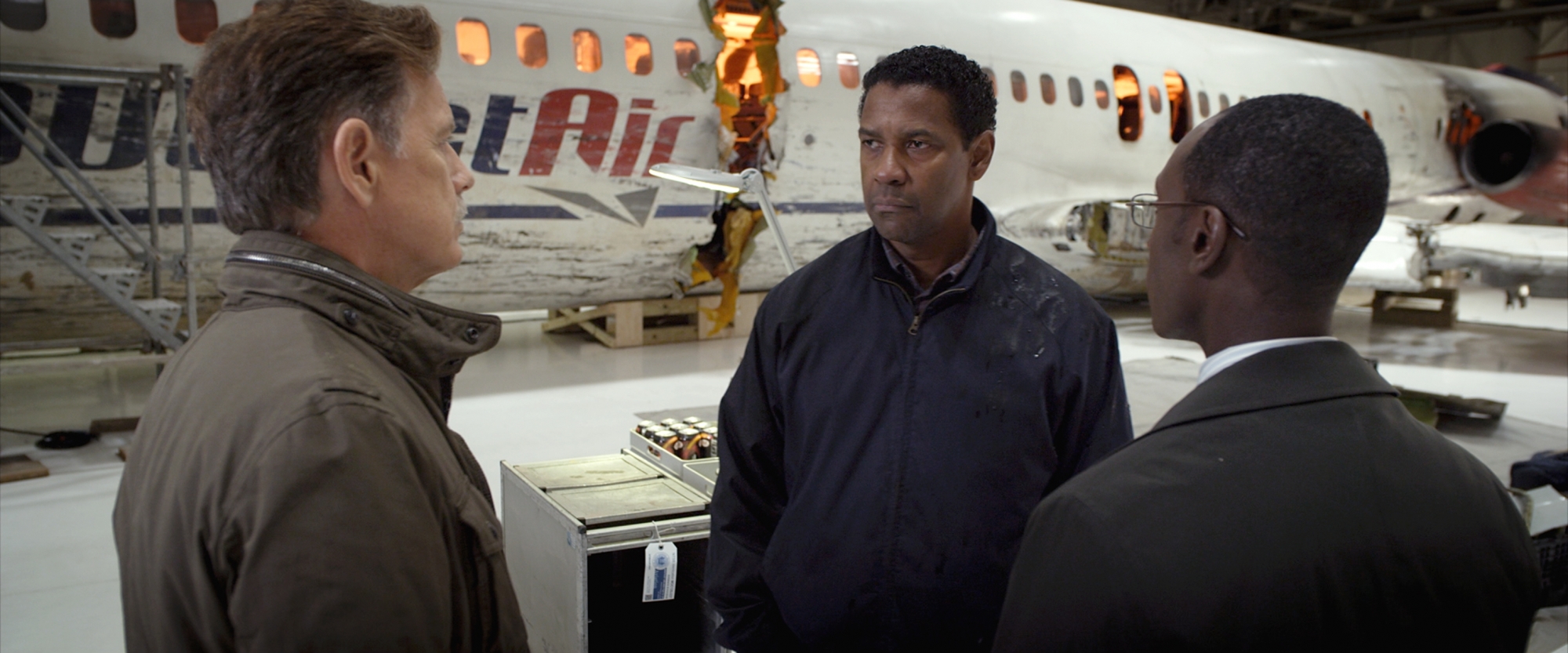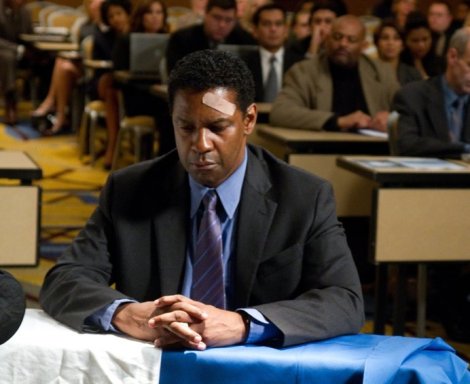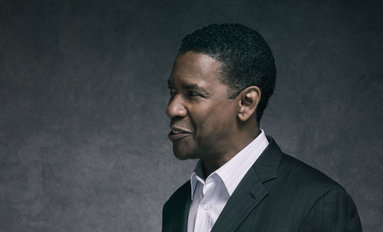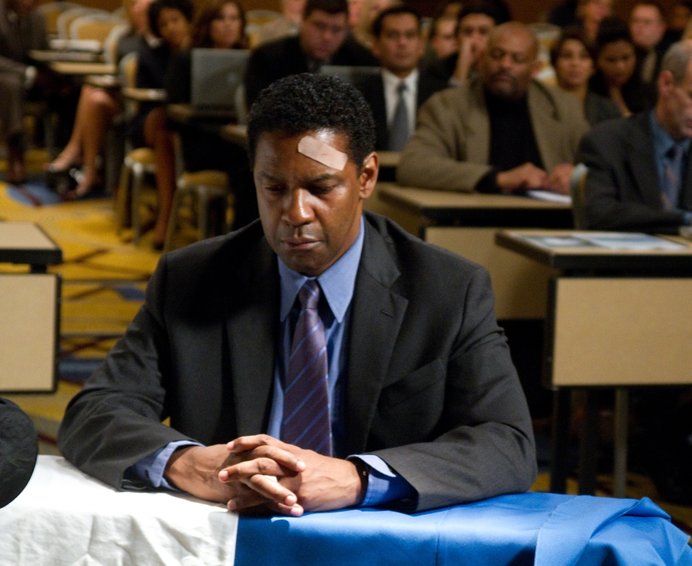Anthony D’Alessandro is managing editor of AwardsLine. David Mermelstein and Paul Brownfield are AwardsLine contributors. This article appeared in the Feb. 13 issue of AwardsLine.
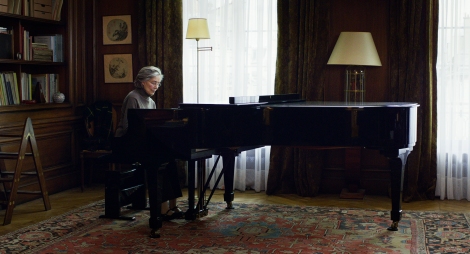
Amour
Auteurs wouldn’t be auteurs if they weren’t enigmatic, especially when it comes to deconstructing details of their oeuvre. “Let the film speak for itself” is often the motto, and for Amour director and screenwriter Michael Haneke, that’s not too far from his own credo. However, he’s not completely inaccessible when responding to the audience’s fervor for his work.
“It’s very difficult for me to say, it was so long ago, I can’t remember,” Haneke told AwardsLine when asked if there were one particularly challenging scene to write for Amour. “Generally, when it comes to screenwriting, I can say that if it’s flowing, you enjoy it. If not, it’s far less pleasant. But there’s always ambivalence—the struggle to put something there on a blank page when there was nothing there before. If it’s successful, you’re happy; if not, you’re depressed.”
In writing the story of 80-year-old husband Georges who contends with his dying wife Anne’s debilitated state, Haneke was spurred by a beloved aunt’s long and painful battle with a degenerative condition. For the director, the story of the elderly couple’s struggle was a universal tragedy versus a tragic drama “about a 40-year-old couple who is coping with a child dying of cancer.”
In researching the script, Haneke met extensively with medical specialists who work with stroke victims. His only note to Emmanuelle Riva in terms of preparing for the role was to undergo speech-therapy sessions for stroke patients. Riva initially read for the part of Anne, but Haneke had Jean-Louis Trintignant in mind for the role of Georges and wouldn’t have made Amour if the actor weren’t available.
“I like writing for actors who I know and respect, and I know I can get results,” says Haneke, who has admired Trintignant’s work since he was a teenager. In regards to Isabelle Huppert, another Haneke vet from such films as The Piano Teacher and Time of the Wolf, the director praises her talents. “She is like a Stradivarius violin, on which you can play Bach, Mozart, or Brahms, and it will always sound good.”
Setting the film in one apartment “was always the choice,” says the director. “When you get older, when you have ill health, your life is reduced to the four walls that you are living in. But beyond that, there was also the challenge of dealing with a theme of this gravity. For that, I went back to the classical use of time, space, and action.”
Though asked by his aunt to assist with her death, a request Haneke denied, the director-scribe asserts that there’s nothing in Amour that he cribbed from real life. In particular, the film’s tragic ending.
“That’s the kind of question I never answer on principle,” says Haneke in regards to interpreting Amour’s conclusion. “I respect my films, and I am trying to force the spectator with these scenes to find their own answers and their own interpretation of what they see on screen. If I were to provide interpretation, I could be wrong and robbing you of your imagination.”
Spoken like a true auteur.—Anthony D’Alessandro, David Mermelstein
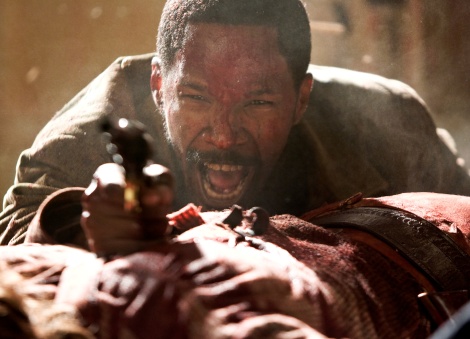
Django Unchained
Just as Quentin Tarantino casts extensively for the right actor who’ll recite his dialogue properly, he is equally exacting when it comes to the punch and snap of his comedy scenes. And if there’s one takeaway moment that helps ease the ultraviolent intensity in his revisionist western Django Unchained, it’s the lynch-mob scene where a gaggle of hooded Klansmen, led by plantation owner Big Daddy (Don Johnson), plot their attack against bounty hunter Dr. King Schultz (Christoph Waltz) and Django (Jamie Foxx), who have offed slave handlers the Brittle brothers.
“The comedy rhythm is very specific and an actor needs to say this word and this word for a punchline to work or for the tone to work, but I have perfect actors,” Tarantino explains.
It’s a classic western comedy moment, rivaling the campfire sequence in Mel Brooks’ Blazing Saddles: The dim-witted Klansmen debate about wearing hoods or not, because the person who made them didn’t cut the eye holes in the right places. For Tarantino, watching Birth of a Nation after his Django Klansman scene is all the more hilarious because the reality probably was that those actors couldn’t see a thing.
“I’m positive it’s half the reason why Amy (Pascal) wanted to be involved in the movie because she felt that the bag scene was so funny,” Tarantino says. “It’s actually terrifying to write something that funny on the page. If I write something that funny on the page and count on Jamie (Foxx) and Sam (L. Jackson) to say it, then I have no worries. But I had to spread that scene out between six people, and they all had to deliver.”
Despite any outrage that Django has triggered in the African-American media, in particular Spike Lee’s ire, the film was recognized by the NAACP Image Awards with best supporting acting wins for Kerry Washington and Samuel L. Jackson, as well as a best picture nomination and acting nod for Jamie Foxx. Yet from what Tarantino has observed at screenings, it’s his bag scene that’s a clincher.
“You get a cathartic laugh from audiences, especially black audiences, because they start giggling uncontrollably as that scene builds in its absurdity,” says the director. “The tone of the laughter is: ‘We were scared of these idiots?’ ” —Anthony D’Alessandro
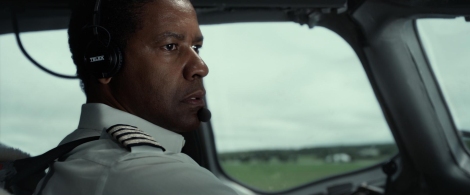
Flight
In Flight, screenwriter John Gatins had to figure out how his main character, pilot Whip Whitaker (Denzel Washington), would first cross paths with the heroin addict Nicole, played by Kelly Reilly.
Flight is a story about an alcoholic hitting rock bottom inside the protective shell of an act of daring heroism: The crash-landing of a commercial flight. But Gatins says he wanted “a little bit of a two-handed narrative in the first half of the movie.”
Enter Nicole, a junkie on her own descent. Gatins set their random meeting in the stairwell of a hospital. He did not, however, expect a third character to insert himself into the scene—a young cancer patient, played by James Badge Dale, who, finding Whip and Nicole smoking in the stairwell, asks to bum a cigarette and becomes “thematically a guy who comes and talks about the random nature of life and events that have to do with, what
do you believe?”
“Had I sat to really try to outline the entire movie, I never would have said, ‘Oh, scene 17 is going to be in a stairwell, and a cancer patient is going to walk in and talk for six pages and then leave, and we’re never going to see him again.’ But given the nature by which I wrote this movie, with letting the story unfold a little bit, and even though it was a little bit unwieldy at times—it was long and I had to do a lot of cutting and circling back and everything else—that cancer patient was one of those happy accidents of living in the world of (Whip’s) mind and what he might encounter once he was there,” Gatins explains.
Yet even though the character simply called Gaunt Young Man helped solidify the scene, Gatins wasn’t necessarily sure the man would ever be fully realized as a character. “There was a part of me that thought at times that he wouldn’t survive the movie or even the script cut, but I kind of fell immediately in love with him. I mean, I know he was a bit of the Oracle at Delphi, but I loved that about him, too. It was one of those things where it’s like, ‘Well, he can just say whatever he wants.’ Everyone has interesting reactions to that scene, which is another thing that made me very grateful that I decided to leave it in the script, and when (director Robert) Zemeckis and I sat down, it was one of the first things he wanted to talk about. He said, ‘It’s the framework of the whole movie. It’s important, it’s pivotal.’ ”—Paul Brownfield
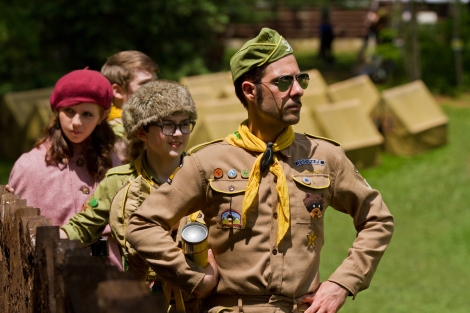
Moonrise Kingdom
On the lam from their parents and the authorities, two 12-year-old lovers enlist the aid of a high-ranking official in the Khaki Scouts to marry them quickly and help them escape the forces that would return them to adolescence. Roman Coppola, who cowrote Moonrise Kingdom with director Wes Anderson, is quite fond of the scene that stars his cousin, Jason Schwartzman.
Schwartzman is Uncle Ben, the aforementioned high-ranking official in the Khaki Scouts. Paid off to help the young Scout Sam and his child-bride-to-be Suzy escape, he tells the boy: “There’s a cold-water crabber moored off Broken Rock, the skipper owes me an IOU, we’ll see if he can take you on as a claw-cracker. Won’t be an easy life, but it’s better than shock therapy.”
“He can’t legally wed them, but he has a certain status due to being this high-level scout,” Coppola says. “And his language and the way he speaks has a distinctive manner that has to do with his position.”
Within Uncle Ben’s blizzard of words and comic alliteration—“cold-water crabber,” “claw-cracker”—is the surface tone of Moonrise Kingdom, in which characters have their own verbal coding: Deadpan and heavily formalized speech is part of the engine of a comedy about adolescence.
“The choice of words relate to the character’s function,” Coppola says. “For example, there’s the police officer, and the parents of Suzy are some type of lawyers. Often in their conversations, they use legal turns of phrase.”
Uncle Ben talks fast, in keeping with his function in the story—to conduct a quickie, unofficial wedding and get our two young lovers off the island. Schwartzman, with little time to waste, speaks his lines in what Coppola calls “a wonderful kind of ’40s, Ben Hecht-ian kind of way, in this urgent blast of dialogue.”
“When some dialogue comes out so quickly, it takes a moment to catch up to it, so it’s a scene I enjoy watching again and again,” Coppola continues. “The writing of it, and seeing Wes manifest that through his work as a director—and the actors, of course—it’s really one of the more touching scenes for me. These two young lovers are committed to each other, and they want to be married. They’re willing to be on the lam and live in a chaotic way, due to this true love. The sentiment is rather deep and sincere, and yet it has a very playful way that it’s presented.”—Paul Brownfield
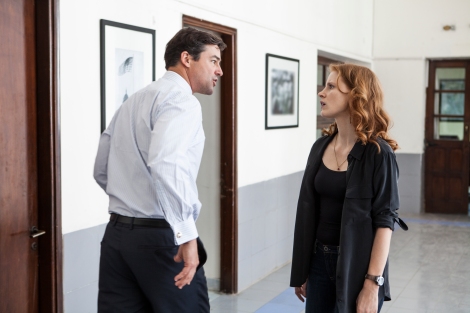
The scene calls for our CIA agent heroine Maya (Jessica Chastain) to explode at her boss in Pakistan, station chief Joseph Bradley, over the prioritizing of resources in the near-decade-long hunt for Osama bin Laden.
“It’s the day after the attempted bombing in New York City” in 2010, screenwriter Mark Boal explains. “We’ve watched (Maya) evolve and devolve from a relatively innocent young officer in the course of seven years to this obsessively driven, committed hunter.”
Stoic for much of the film, Maya finally sheds her emotional armor. “It’s scripted in a way that allowed Jessica to uncork a powerful emotional moment. So it works on an emotional level, and she has the opportunity to really flex her acting muscles and show the strain that she’s been holding beneath this veneer of professionalism. But it also works on a political level, because it shows the resource allocation was so important to the story, and that the CIA was constantly torn between the trade-off between trying to prevent an attack and trying to achieve the longer-term goal of finding and killing bin Laden. We know from history that different administrations placed different priority on that trade-off.”
The hunt for bin Laden, by then, has also led to the death of Maya’s close colleague Jessica (Jennifer Ehle), killed in a suicide bombing on a U.S. base in Khost, Afghanistan. “We think of the CIA as just this faceless organization, but it’s susceptible to all the same personal pettiness of any big corporation or any big high school,” Boal says. “And over the years she’s lost friends and put up with enormous frustration. And then she finally screams at her boss.”
Although the government remains a big bureaucracy, Boal says he also wanted to show how close CIA agents become in this type of work. “The team that found and killed bin Laden is a pretty small team,” he says. “And they all, or most of them, knew each other. It was a very personal undertaking. There’s so much death all around on this story. You have all the deaths in 9/11 and then subsequent deaths in Iraq on both sides and the civilians, and Afghanistan, you have the horrors in the black sites and everything. But in addition to that, you have the deaths among the CIA. There was a real historic, personal connection between Maya and the character that’s represented as being killed in Khost. There’s a scene in the film where they’re texting each other right before. They were friends. That sort of friend-mentor relationship in the film I didn’t pull out of my ass—that’s real. It just shows how personal this all was for them.”—Paul Brownfield

